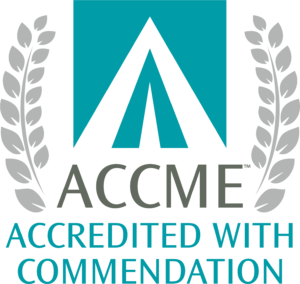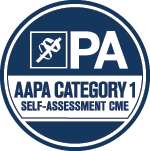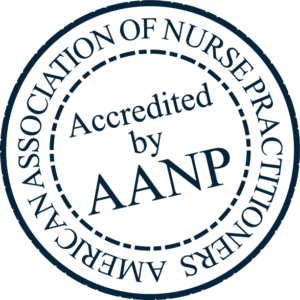This FREE 10-hour CME/CE training on the treatment and management of patients with opioid or other substance use disorders satisfies the new one-time, eight-hour training requirement for all Drug Enforcement Administration (DEA)-registered practitioners.
The NEJM Knowledge+ Pain Management and Opioids CME/CE course provides up to 10 hours of CME in this one activity, aligns with SAMHSA’s content recommendations required by the 2022 Medication Access and Training Expansion (MATE) Act and enhances your knowledge about opioids, so you can feel more confident managing pain appropriately. This course is offered FREE to medical professionals and includes the following features:
- Curation of content into 8 topic areas for streamlined learning
- New learning resources to supplement the case-based questions
- Summary PDFs that you can download and review to keep your knowledge fresh
- New reports on each question showing how other learners answered
To claim your CME/CE credits, you must answer all 62 case-based questions. Once you have seen the completion pop-up message, you can go to the Accreditation Center within the product to download a transcript of your credits.
Pain Management an Opioids Free Online CME from NEJM Knowledge+.
Topic Breakdowns and Summaries
Case-based questions in Pain Management and Opioids are sorted into 8 topic areas, which you will be asked to review sequentially:
- Musculoskeletal pain
- Common non-musculoskeletal pain
- Basics of opioid prescribing I
- Basics of opioid prescribing II
- Complex situations in opioid prescribing
- Opioid pharmacology
- Acute pain
- Opioid use disorder
As you complete each of these key topic areas a PDF summary is available for download. Each summary provides an overview of the topic with links to tools that you can use in daily practice as well as links to related learning resources.
Learning Resource and Clinical Tools
We have received overwhelmingly positive feedback on this educational activity, as well as requests for additional information on topics that clinicians find particularly challenging, such as talking to patients about their opioid use and determining the best strategy for tapering opioid therapy. To that end, we have created a series of learning resources to supplement this activity that are available from within the module as well as through the Topic Summary PDFs.
This course covers:
FDA Opioid Analgesic REMS Education Blueprint for Health Care Providers
Involved in the Treatment and Monitoring of Patients with Pain
Over 60 case-based questions with feedback and resources
Pain Management and Opioids CME/CE increases your knowledge of:
- The latest practices for assessing and managing acute and chronic pain.
- Current guidelines in the appropriate use of opioids for pain management.
- Evidence-based strategies for recognizing and treating opioid use disorder.
Pain Management CME: The NEJM Knowledge+ Difference
Clinicians value NEJM Knowledge+ for more than earning CME. It has been proven to help them pass their board exams, engage in lifelong learning, and improve their confidence and clinical decision-making skills. The Pain Management and Opioids CME/CE module employs the cognitive science principles of all NEJM Knowledge+ programs to give you the same trusted learning outcomes.
Adaptive Learning Advantage
NEJM Knowledge+ encourages you to be a lifelong learner. Once you have successfully completed your Pain Management and Opioids CME/CE requirements, you can return to the program to refresh your knowledge around safe prescribing. Our adaptive learning algorithms adjust the questions you see based on their assessment of your understanding of the material, as well as your confidence and response time, to adjust your learning pathway in real time.
What Is Adaptive Learning?
An individualized learning experience that starts by determining a learner’s strengths and weaknesses, then uses powerful algorithms to serve information and learning exercises that address limitations and guide the learner to greater proficiency.
Opioids CME/CE: How the NEJM Knowledge+ Online Course Works
- Complete the online registration form
- Start answering questions anytime, anywhere you want.
Please note: You must answer all 62 case-based questions and review the corresponding feedback to claim your CME/CE credits (see table below for more detail). After completing your CME/CE requirements, you can continue to use the Pain Management and Opioids module to refresh your knowledge, as much as you want.
Obtaining Credits and Points
| AMA PRA Category 1 Credits™ (earn up to 10) | MOC Points (ABIM AND ABP Only) (earn up to 10) | AAFP Prescribed Credits (earn up to 10) |
|---|---|---|
| Automatically tracked while learning | Provide your ABIM or ABP # and your Date of Birth | Automatically tracked while learning |
| Print your transcript | Your points are submitted for you as you earn them. Register » | Print your transcript Register » |
.
Why You Should Register for Your FREE Online Pain Management and Opioids CME Course
We understand the pressures facing today’s medical professionals. You need to stay on top of a constantly growing and evolving body of medical knowledge to provide the best patient care. Our nation’s opioid epidemic makes the job even harder, requiring you to meet the needs of your patients while complying with requirements from regulatory and oversight organizations.
The NEJM Knowledge+ Pain Management and Opioids CME/CE course addresses these needs and is the most efficient way to review the current, evidence-based clinical knowledge on opioid analgesics. Completing this activity will improve your knowledge about:
- The fundamental concepts of pain management, including definitions and mechanisms of pain.
- How to assess patients in pain, while identifying risk factors for abuse and addiction.
- The range of therapeutic options for managing pain, including non-pharmacologic approaches and pharmacologic (non-opioid and opioid analgesics) therapies.
- How to integrate opioid analgesics into a pain treatment plan individualized to the needs of the patient.
- How to safely and effectively manage patients on opioid analgesics in acute and chronic pain settings, including initiating therapy, titrating, and discontinuing use of opioid analgesics.
- How to counsel patients and caregivers about the safe use of opioid analgesics, including proper storage and disposal.
- How to counsel patients and caregivers about the use of naloxone for opioid overdose.
- When referral to a pain specialist is appropriate.
- The fundamental elements of addiction medicine.
- How to identify and manage patients with opioid use disorder.
Did You Know?
NEJM Knowledge+ Pain Management and Opioids module may also help you comply with CDC safe prescribing guidelines and state-mandated CME requirements.
Accreditation Information
Disclosure of support
This activity is supported by an independent educational grant from the Opioid Analgesic REMS Program Companies. Please see https://www.opioidanalgesicrems.com/Resources/Docs/List_of_RPC_Companies.pdf for a listing of REMS Program Companies. This activity is intended to be fully compliant with the Opioid Analgesic REMS education requirements issued by the US Food and Drug Administration.
Accreditation Statement
 The Massachusetts Medical Society is accredited by the Accreditation Council for Continuing Medical Education (ACCME) to provide continuing medical education for physicians.
The Massachusetts Medical Society is accredited by the Accreditation Council for Continuing Medical Education (ACCME) to provide continuing medical education for physicians.
AMA Credit Designation Statement
The Massachusetts Medical Society designates this enduring material for a maximum of 10 AMA PRA Category 1 Credits™. Physicians should claim only the credit commensurate with the extent of their participation in the activity.
Risk Management and Pain Management Credits
This activity meets the criteria of the Massachusetts Board of Registration in Medicine for risk management study.
This activity meets the criteria of the Massachusetts Board of Registration in Medicine for opioid education.
Many states have similar requirements. Please check with your Board to determine if this activity will fulfill your state's specific requirements.
American Board of Internal Medicine MOC Points
 NEJM Knowledge+ Pain Management and Opioids (IM) only: Successful completion of this CME activity, which includes participation in the evaluation component, enables the participant to earn up to 10 MOC points and patient safety MOC credit in the American Board of Internal Medicine’s (ABIM) Maintenance of Certification (MOC) program. Participants will earn MOC points equivalent to the amount of CME credits claimed for the activity. It is the CME activity provider’s responsibility to submit participant completion information to ACCME for the purpose of granting ABIM MOC credit.
NEJM Knowledge+ Pain Management and Opioids (IM) only: Successful completion of this CME activity, which includes participation in the evaluation component, enables the participant to earn up to 10 MOC points and patient safety MOC credit in the American Board of Internal Medicine’s (ABIM) Maintenance of Certification (MOC) program. Participants will earn MOC points equivalent to the amount of CME credits claimed for the activity. It is the CME activity provider’s responsibility to submit participant completion information to ACCME for the purpose of granting ABIM MOC credit.
American Academy of Family Physicians (AAFP)
NEJM Knowledge+ Pain Management and Opioids (FM) only: The AAFP has reviewed NEJM Knowledge+ Pain Management and Opioids and deemed it acceptable for up to 10.25 Enduring Materials, Self-Study AAFP Prescribed credits. Term of Approval is from 04/15/2024 to 04/15/2025. Physicians should claim only the credit commensurate with the extent of their participation in the activity.
American Board of Medical Specialties Maintenance of Certification Part 2 Credit
Through the American Board of Medical Specialties (“ABMS”) ongoing commitment to increase access to practice relevant Continuing Certification Activities through the ABMS Continuing Certification Directory, NEJM Knowledge+ Pain Management and Opioids has met the requirements as an MOC Part II Self-Assessment and/or MOC Part II CME Activity (apply toward general CME requirement) for the following ABMS Member Boards:
MOC Part II Self-Assessment Activity Physical Medicine and Rehabilitation
MOC Part II CME Activity Anesthesiology, Family Medicine, Preventive Medicine, Psychiatry and Neurology, and Radiology
American Academy of Physician Assistants (AAPA)
This activity has been reviewed by the AAPA Review Panel and is compliant with AAPA CME Criteria. This activity is designated for 10.25 AAPA Category 1 CME credits. PAs should only claim credit commensurate with the extent of their participation. Approval is valid from 4/15/2024 to 4/14/2025. AAPA reference number: CME-2011305.
American Association of Nurse Practitioners (AANP)
This activity is approved for 10.0 contact hour(s) of continuing education (which includes 10.0 hours of pharmacology) by the American Association of Nurse Practitioners. Activity ID 23036011. This activity was planned in accordance with AANP Accreditation Standards and Policies.
ACPE Credits
 The University of Rhode Island College of Pharmacy is accredited by the Accreditation Council for Pharmacy Education as a provider of continuing pharmacy education. This is an application-based educational activity. Pharmacists will receive 8.0 contact hours (0.8 CEUS) for the educational activity. No partial credit is available. UNIVERSAL ACTIVITY NUMBERS (UAN) 0060-9999-22-055-H08-P
The University of Rhode Island College of Pharmacy is accredited by the Accreditation Council for Pharmacy Education as a provider of continuing pharmacy education. This is an application-based educational activity. Pharmacists will receive 8.0 contact hours (0.8 CEUS) for the educational activity. No partial credit is available. UNIVERSAL ACTIVITY NUMBERS (UAN) 0060-9999-22-055-H08-P


